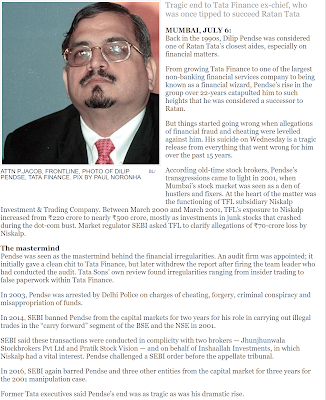- Venkaiah Naidu's selection for Vice President is as per expectations because Modi's vision of India doesn't go beyond RSS.
- President, Vice President, Prime Minister, Home Minister, UP CM - all crucial power positions are now under the armpits of RSS.
- None of these people, other than their politics in RSS & BJP, have no accomplishments worth advertising! Of course they had the artistic gift of public speaking.
- Their contributions or sacrifices for nation, poor or peasants are none, so far.
- Minorities, especially Muslims and people from Southern and Eastern states be careful in their political, business and industrial activities. They have no love last for these people. Their vision is confined to North, West & Central India, the Hindi speaking belts.
Here are few important points about RSS:
- The RSS was banned once during British rule, and then thrice by the post-independence Indian government – first in 1948 when a former RSS member assassinated Mahatma Gandhi; then during the emergency (1975–77); and for a third time after the demolition of Babri Masjid in 1992.
- RSS founder KB Hegdewar was a political protege of B. S. Moonje, a Tilakite Congressman. Hedgewar personally participated in the 'Satyagraha' launched by Gandhi in April 1930, but he did not get the RSS involved in the movement.
- The Bombay government, in a report, appreciated the RSS by noting that the Sangh had scrupulously kept itself within the law and refrained from taking part in the disturbances (Quit India Movement) that broke out in August 1942. RSS assured the British authorities that it had no intentions of offending against the orders of the Government.
- The RSS initially did not recognize the Tricolor as the National Flag of India. The RSS mouthpiece, the Organiser, demanded, in an editorial that the Bhagwa Dhwaj (Saffron Flag) be adopted as the National Flag of India. After the Tricolor was adopted as the National Flag of India by the Constituent Assembly of India on 22 July 1947, the Organiser viciously attacked the Tricolor and the decision to adopt it as the National Flag of India. The RSS hoisted the National Flag of India at its headquarters in Nagpur, on 14 August 1947 and on 26 January 1950, but stopped doing so after that.
- The RSS initially did not recognize the Constitution of India, strongly criticising it because the Indian Constitution made no mention of "Manu's laws" – from the controversial ancient Hindu text Manusmriti, which had been said to denigrate the lower castes and untouchables in India.
- The RSS criticised B. R. Ambedkar's public pronouncements that the new constitution would give equality to all castes. On 6 February 1950 the Organizer carried another article, titled "Manu Rules our Hearts", written by a retired High Court Judge named Sankar Subba Aiyar, that reaffirmed their support for the Manusmriti as the final law giving authority for Hindus, rather than the Constitution of India.
- The RSS' opposition to, and vitriolic attacks against, the Constitution of India and its author Ambedkar continued post independence, even long after Ambedkar's death.



